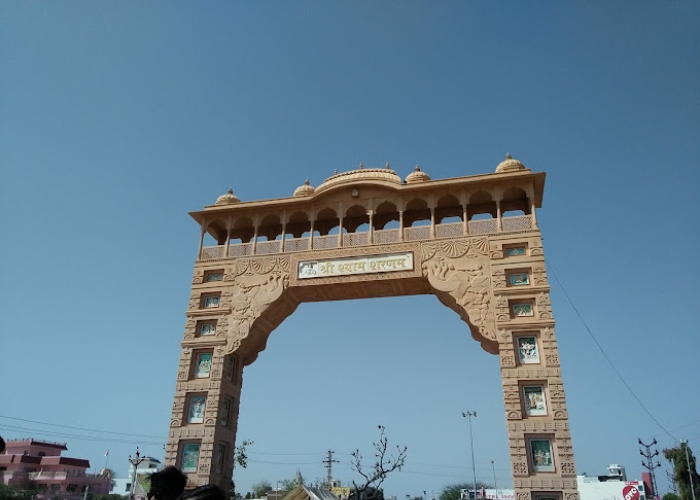
- Jan 25 2016
- Admin
- 12
- 3332
- Travel
Main Gate Circle Khatushyamji
Khatu Shyamji Temple is a Hindu temple located in the town of Khatu in the Sikar district of Rajasthan, India. This temple is dedicated to Lord Krishna in his manifestation as Khatu Shyam, also known as Barbarika or Khatushyamji. The temple is a popular pilgrimage site for devotees of Lord Krishna and is visited by thousands of people every year.
The legend behind Khatu Shyamji Temple is an interesting one. According to Hindu mythology, Barbarika, the grandson of Bhima and the son of Ghatotkacha, was a warrior who fought on the side of the Pandavas in the Mahabharata war. Barbarika had received a boon from Lord Krishna that he would be invincible in battle, but his power would only be used for the weaker side. When the war was about to begin, Barbarika decided to fight for the softer side. Still, Krishna realized that if Barbarika fought, he would single-handedly defeat both the Kauravas and the Pandavas. To prevent this, Krishna asked Barbarika to sacrifice his head, which he did. Impressed by his devotion, Krishna blessed him with the boon that his name would be taken before any battle and that he would be worshipped as Khatushyamji.
The Khatu Shyamji Temple is a beautiful and majestic structure built in the Rajasthani style of architecture. The temple is made of stone and marble and is adorned with intricate carvings and sculptures. The main sanctum of the temple houses the idol of Khatu Shyam, which is said to be more than 500 years old. The model is made of black stone and is around one meter tall. Worshipping Khatu Shyamji is believed to bring good luck, prosperity, and success in life.
The temple complex also has several other shrines dedicated to gods and goddesses. One of the most popular shrines is that of Lord Hanuman, which is located on the right-hand side of the main temple. The shrine of Mataji, the mother goddess, is located on the left-hand side of the main temple. The complex also has a Dharamshala, or a guest house, where devotees can stay during their visit to the temple.

